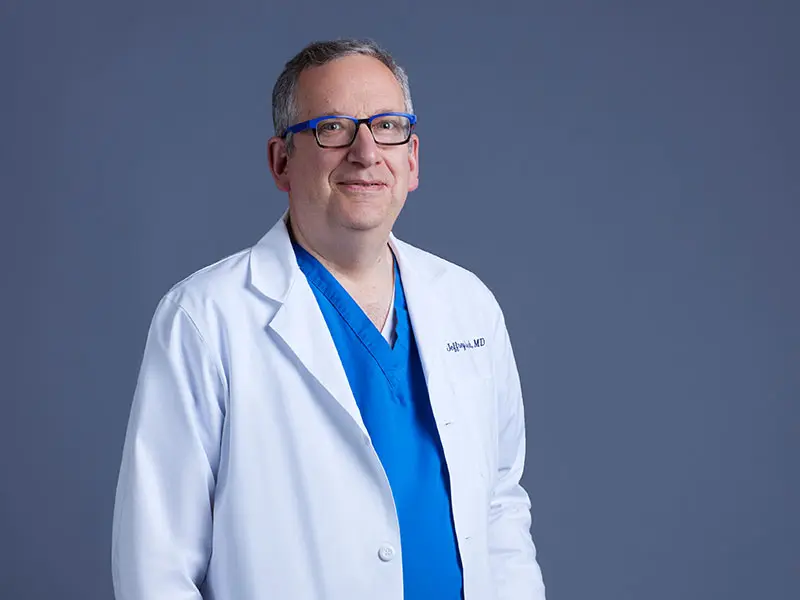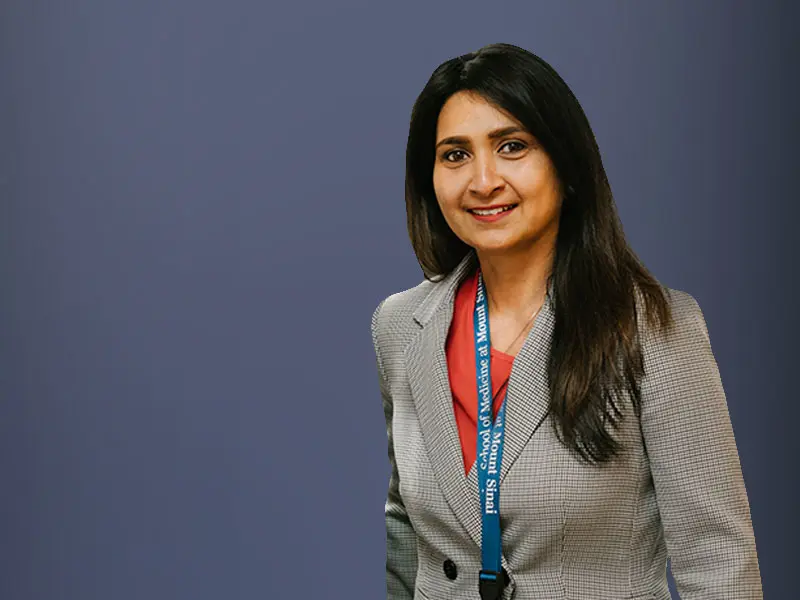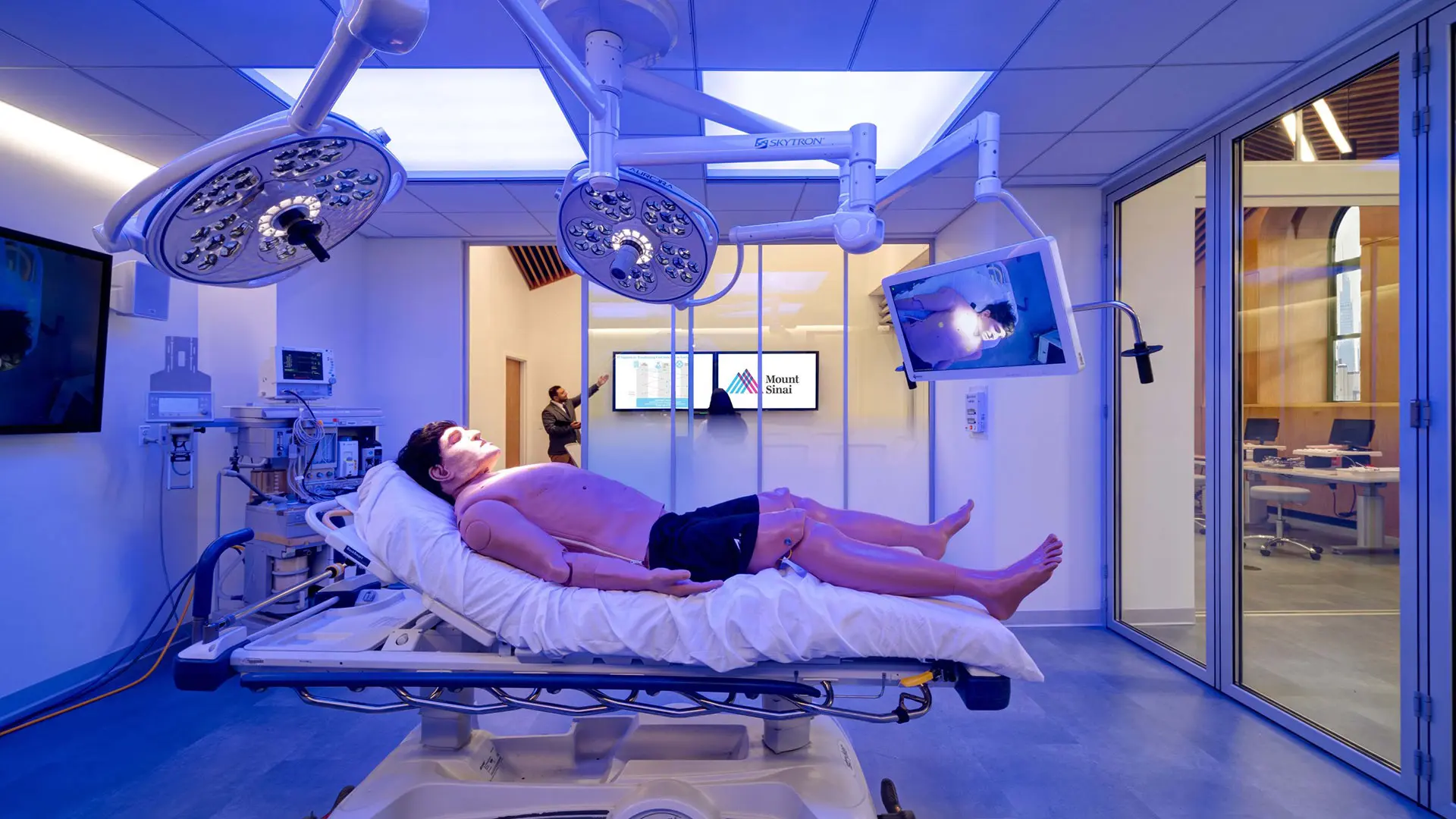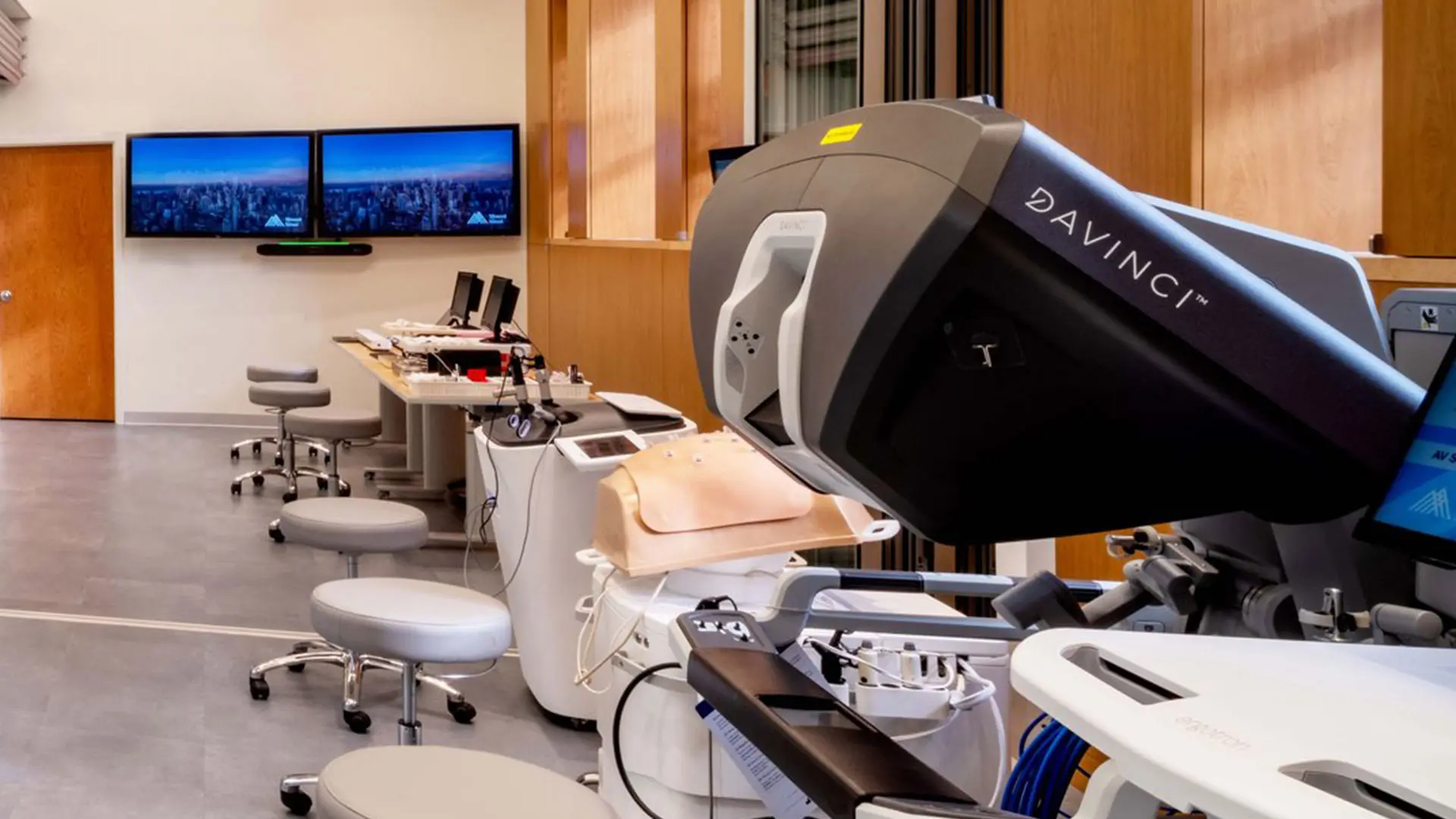Mount Sinai’s Department of Urology continues to make strides in training a new generation in the necessary clinical, surgical, and decision-making skills to excel in the field and deliver outstanding care to patients in an area of medicine undergoing rapid change. The Department is also taking measures to diversify candidates and deliver more timely learning support and interventions so that residents successfully complete their training.
“Our goal is to train the next generation of urologists to take on leadership positions, so we are making sure everyone is a great clinician and has great surgical skills and decision-making, as well as an understanding of other nonsurgical areas such as quality improvement and patient safety,” says Jeffrey A. Stock, MD, Chief of Pediatric Urology and Director of the Residency Program, Pediatric Urology, and Robotic Surgery. “You must also have an attitude of lifelong learning. A lot of the procedures I do today were a dream when I was training. As fast as things have changed, I think they will continue to change for the next ten years or more.”
The Department has experienced rapid growth over the last eight years in its training program—matching the growth in its overall size and surgical volume—and is now one of the largest residency programs in the United States, with five residents per year. During this time, the Urology Department at The Mount Sinai Hospital has risen to No. 14 in the nation in the U.S. News & World Report rankings, and the Department is attracting students from leading medical schools. The Department also offers ten fellowship programs, with more planned. Trainees have the opportunity to work with a large and diverse group of faculty who are experts in their fields and represent a growing number of subspecialties, including pediatric urology.

“There aren’t many schools that can offer the breadth and depth of expertise we’re able to as part of the didactic experience for students,” says Jeffrey A. Stock, MD, Chief of Pediatric Urology and Director of the Urology Residency Program.
The Department’s commitment to excellence in education is exemplified by the introduction of two new fellowship programs. One is a comprehensive two-year Society of Urologic Oncology Fellowship at The Mount Sinai Hospital, with one year dedicated to clinical experience and the other dedicated to clinical and/or basic science research. During the clinical year, the fellow will develop extensive expertise in both open and robotic surgeries for treatment of bladder cancer (with intracorporeal urinary diversions), renal cell carcinoma, upper tract urothelial carcinoma, prostate cancer, testicular cancer, penile cancer, genitourinary (GU) sarcomas, and other rare GU cancers. The program director is Reza Mehrazin, MD.
The second program, a one-year Fellowship in Reconstructive Urology at the Icahn School of Medicine at Mount Sinai, offered through the Society of Genitourinary Surgeons (GURS), combines academic and clinical excellence to prepare graduates to provide comprehensive, individualized diagnosis and treatment of a variety of reconstructive urology conditions, including complex urethral strictures, urinary incontinence, and erectile dysfunction with prosthetic surgery. It also equips fellows with expertise in gender affirmation surgery procedures, such as metoidioplasty, vaginoplasty, phalloplasty, and revision operations. As one measure of success, a number of recent graduates have gone on to become leaders in the field nationwide. The program director is Rajveer Purohit, MD, MPH.
“We have invested considerable effort in developing these new fellowship programs, which I believe offer top-notch urology training,” says Dr. Stock, who is also a Professor of Urology, and Pediatrics, at Icahn Mount Sinai.
Thanks to recent advances in technology, another notable advancement was the introduction in fall 2021 of simulation-based skills training at the Mount Sinai Surgical Simulation Center, which is shared among other Mount Sinai departments, including the Department of Surgery. The Center is a state-of-the-art facility for the field of operating room and surgical simulation, able to create nearly any health care scenario. This simulation center facilitates the type of teamwork, interactions, and communications among staff that contributes to improving the level of safety and care, as well as providing hands-on training with virtual manikin simulators, high-definition laparoscopic stations, and robots.
This training covers a wide range of procedures from urologic endoscopies to partial nephrectomies. Residents also have access to the Center to practice their skills on their own time, further building their confidence and ability to treat Mount Sinai patients.

“We want to listen and talk to residents to learn what their greatest needs are," says Priyanka Dwivedi, EdD, MAEd, Senior Director, Medical Education and Faculty Affairs
“Access to effective simulation-based training provides the opportunity for repetitive practice in a controlled environment for trainees to acquire, maintain, and enhance their robotic surgical skill set through structured and deliberate practice without endangering patient safety,” says Priyanka Dwivedi, MS, Senior Director, Medical Education and Faculty Affairs at Icahn Mount Sinai. “Simulation has been hypothesized to enhance progression along the initial phase of the surgical learning curve, with skills that are learned via simulation being shown to be transferable to the OR.” In the past, some of this training was done off-site.
As these initiatives enhance the knowledge and skills of trainees, others focus on overall well-being. The addition of mentors and site coaches at the five hospitals where training is conducted has created more opportunities to review residents’ goals and progress, and thus more opportunities to assist within areas of academic performance, psychomotor skill challenges, or personal issues. The Department offers a mentorship program and encourages residents to meet with mentors regularly, and also provides support for new parents and for others facing personal challenges.
“We now offer a continuum of feedback, which is more timely and the product of greater communication between leaders and residents,” says Ms. Dwivedi. “We are watching our trainees through this educational journey, and we are listening to them.”

Another notable advancement was the introduction of simulation-based skills training at the Mount Sinai Surgical Simulation Center.

The Center is a state-of-the-art facility for the field of operating room and surgical simulation, shared among other Mount Sinai departments, including the Department of Surgery.
“We provide timely feedback that benefits our residents, but it has also been beneficial in terms of the care we deliver to patients,” Dr. Stock says. “For example, based on residents’ feedback, we are collaborating more with the Department of Social Work Services and the Mount Sinai Rehabilitation Center to make sure all our patients’ needs are being met, whether that is securing their medications or ensuring that they can easily access their fifth-floor walk-up apartment.”
The Department is continuing with ongoing efforts to diversify the field through commitments to placements for underrepresented groups and by matching up to three of the program’s five annual residency opportunities with female candidates. “Being based in New York City, we serve a very diverse population," Dr. Stock says. "We want our staff and our residents to reflect that diversity.”
Mount Sinai’s approach also stresses the importance of teamwork. “A lot of people went into medicine because they were very independent minded,” says Dr. Stock. “Everything is based on teamwork today. That's a big part of what we're trying to do to properly take care of patients. You need a team that functions well.”
Having made these enhancements, Dr. Stock is interested in reimagining the urology training curriculum and pedagogy to focus on individual trainees and their learning needs. He is also looking to expand training offerings to cover every subspeciality within the field of urology.
“Many urology training programs have one expert in bladder cancer or female urology,” he says. “At Mount Sinai, we have multiple experts in all areas of urology, many of whom are the leaders in their field internationally. That is a powerhouse of expertise that supersedes what other programs can offer, and it enables us to offer our residents more choice in terms of career paths.”
The Department has experienced rapid growth over the last eight years in its training program—matching the growth in its overall size and surgical volume—and is now one of the largest residency programs in the United States, with five residents per year.
